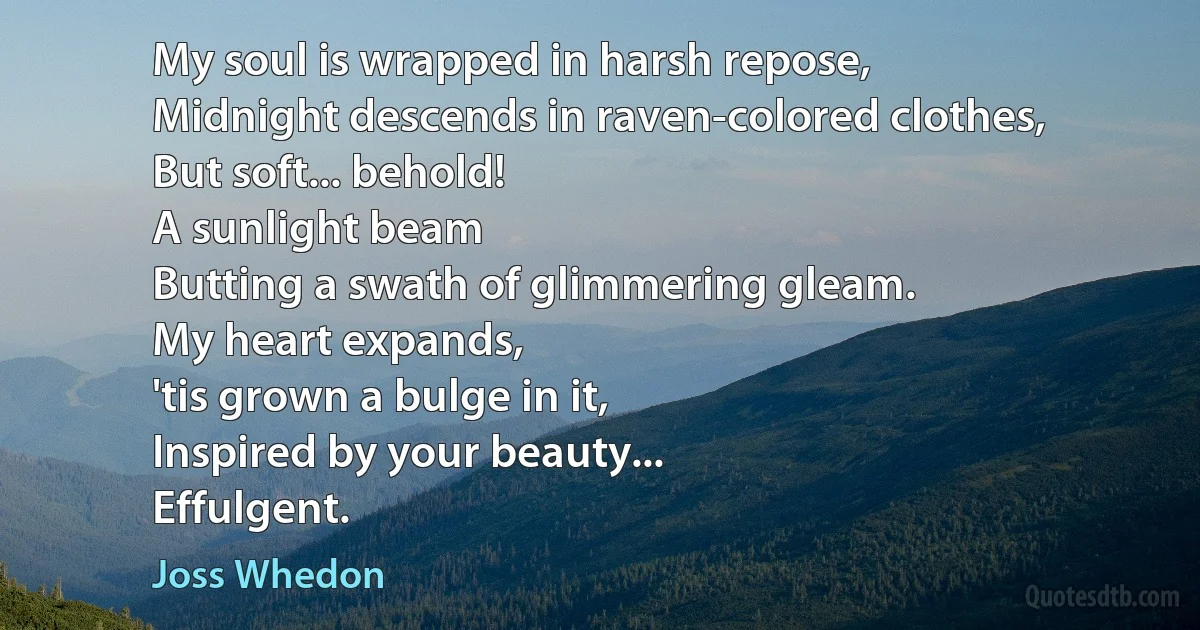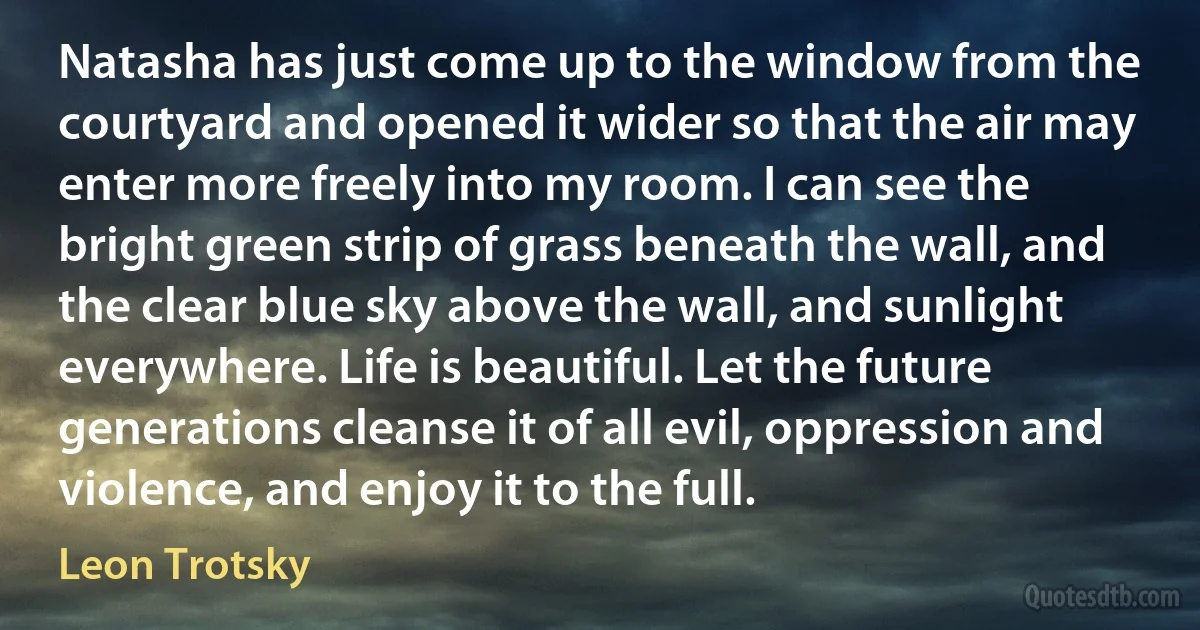Sunlight Quotes - page 4
The leaf that spreads in the sunlight is the only holiness there is. I haven't found holiness in the faiths of mortals, nor in their music, nor in their dreams: it's out in the open field, with the green rows looking at the sky. I don't know what it is, this holiness: but it's there, and it looks at the sky.

Kage Baker
Before battle was joined they say that someone from Trachis warned him how many Persians there were by saying that when they fired their bows, they hid the sun with the mass of arrows. Dianeces, so the story goes, was so dismissive of the Persian numbers that he calmly replied, "All to the good, my friend from Trachis. If the Persians hide the sun, the battle will be in shade rather than sunlight."

Herodotus
In general, it is possible to say that in artists as deliberate, as careful as [Durer and Holbein], drawing is particularly tight and the color is as cold as the verity of mathematics. In other artists, on the contrary, in those who are the poets of the heart, like Raphael, Correggio, Andrea del Sarto, line has more suppleness and color, more winning tenderness. In others whom we call realists that is to say, whose sensibility is more exterior, in Rubens, Velasquez, Rembrandt, for example, line has a living charm with its force and its repose, and the color sometimes bursts into a fanfare of sunlight, sometimes fades into mist.
So, the modes of expression of men of genius differ as much as their souls, and it is impossible to say that in some among them drawing and color are better or worse than in others.

Auguste Rodin
Nothing mankind had done in its short and bloody history had made the slightest bit of difference to this patient geographical realignment.
Meanwhile the Earth, left to its own devices, had deployed a variety of healing mechanisms, physical, chemical, biological, and geological, to recover from the devastating interventions of its human inhabitants. Air pollutants had been broken up by sunlight and dispersed. Bog ore had absorbed much metallic waste. Vegetation had recolonized abandoned landscapes, roots breaking up concrete and asphalt, overgrowing ditches and canals. Erosion by wind and water had caused the final collapse of the last structures, washing it all into sand.
Meanwhile the relentless processes of variation and selection had worked to fill an empty world.

Stephen Baxter
Never mind what others may say, or think, or do. Stand erect in the majesty of your own manhood. Listen for just once to the throbbing of your own heart, and you will hear that it is beating quickstep marches to Camp Freedom. Stand erect! Lift your bowed form from the earth! The dust has long enough borne the impress of your knees. Stand up and see how long a shadow you cast in the sunlight! Hold up your head and avow your convictions, and then accept, as becomes a man, the consequences of your acts!

Eugene V. Debs
She looked down a slope, needing to squint for the sunlight, onto a vast sprawl of houses which had grown up all together, like a well-tended crop, from the dull brown earth; and she thought of the time she'd opened a transistor radio to replace a battery and seen her first printed circuit. The ordered swirl of houses and streets, from this high angle, sprang at her now with the same unexpected, astonishing clarity as the circuit card had. Though she knew even less about radios than about Southern Californians, there were to both outward patterns a hieroglyphic sense of concealed meaning, of an intent to communicate. There'd seemed no limit to what the printed circuit could have told her (if she had tried to find out); so in her first minute of San Narciso, a revelation also trembled just past the threshold of her understanding.

Thomas Pynchon
A builder. A rough and ready plasterer. A colour grinder. He Courbet is like a Roman bricklayer. And yet he's another true painter. There's no one in this century that surpasses him. Even though he rolls up his sleeves, plugs up his ears, demolishes columns, his workmanship is classical!... His view was always compositional. His vision remained traditional. Like his palette-knife, he used it only out of doors. He was sophisticated and brought his work to a high finish... His great contribution is the poetic introduction of nature - the smell of damp leaves, mossy forest cuttings - into nineteenth century painting; the murmur of rain, woodlands shadows, sunlight moving under trees. The sea. And snow, he painted snow like no one else!

Paul Cézanne



